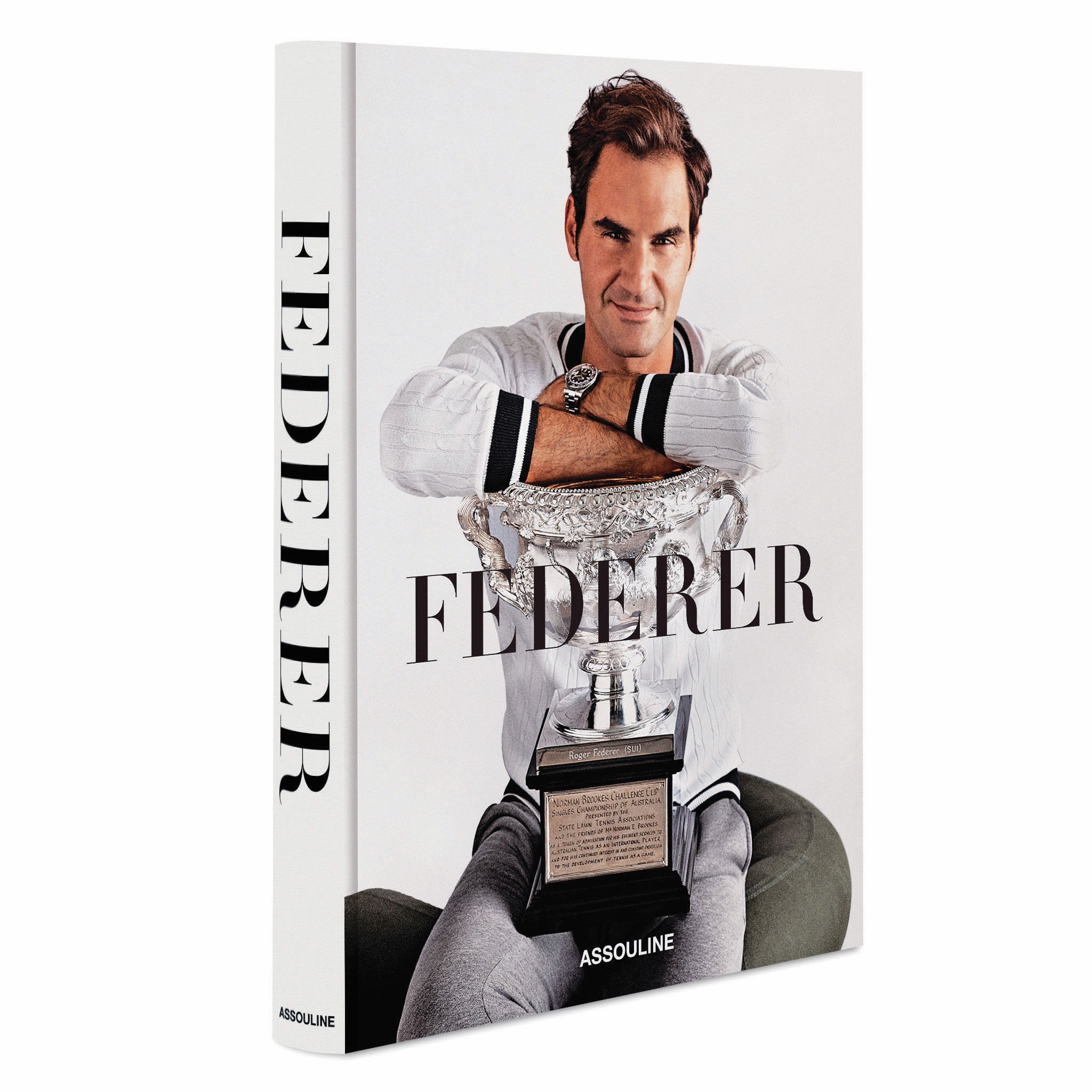Roger Federer’s Two Decades Of Tennis Dominance Highlighted In New Coffee Table Book
The Swiss Maestro’s career on the court is unprecedented in more ways than one.

“When my love of tennis started, I was a ball kid in my hometown of Basel. I used to watch the players with a sense of wonder. They were like giants to me and I began to dream. My dreams led me to work harder and I started to believe in myself. Some success brought me confidence and I was on my way to the most amazing journey that has led to this day. So, I want to thank you all from the bottom of my heart, to everyone around the world who has helped make the dreams of a young Swiss ball kid come true.”
So signed off Roger Federer in a public letter to the global tennis community on September 15, 2022. The so-called “Swiss Maestro” had competed in 1,526 singles and 224 doubles matches, won 20 Grand Slam titles, spent 310 weeks atop the Association of Tennis Professionals (ATP) rankings and won multiple Olympic medals for Switzerland. As the eldest member of “The Big Three” at age 43—the other two being Rafael Nadal and Novak Djokovic—he kicked off the trio’s two decade’s worth of collective dominance with a championship win at Wimbledon in 2003. While fans will cite Djokovic’s 24 and Nadal’s 22 Grand Slam titles while debating which is the tennis’s GOAT, Federer has a leg-up on all past, present and perhaps future racket-wielding stars by one crucial metric: He’s the highest-paid tennis player of all time by far.
A 2022 report from Forbes estimates that Federer has netted a gobsmacking $1.1 billion throughout his career before taxes and agents’ fees—more than twice Nadal’s $500 million and Djokovic’s $470 million. The $130 million in prize money is fractional compared to what he’s earned in endorsements, the largest of which is a 10-year, $300 million contract with Japanese apparel brand Uniqlo that he signed in 2018. Mercedes-Benz, Moët & Chandon, Oliver Peoples, Rolex and NetJets are just a few of the other impressive sponsorship deals the bankable athlete inked between sweatdrenched sets on the tennis world’s biggest stages.
Federer is also the only one of his peers to be honored with a stunning new pictorial retrospective from book publisher Assouline. Authored by veteran sportswriter Doris Henkel, who attended 30 of his 31 Grand Slam finals, Federer covers his beginnings as a ball boy in Basel, Switzerland, to his 2022 retirement at the Laver Cup London—a tournament inspired by golf ’s Ryder Cup that Federer co-founded—and all the aces in between. Daunting as it may seem to break down the critical facets of such a monumental figure, the 16-chapter tome manages to do so concisely and thoroughly, thanks to thoughtfully written chunks of text accompanied by an abundance of wonderfully illustrative archival photos.
“Family First” kicks things off with a brief analysis of the role his wife of 15 years, former top-100-ranked tennis player Miroslava “Mirka” Federer, and their two sets of twins played as a fixture of his support system on the circuit. Fed’s hardest-core fans will likely be drawn to the sections detailing his triumphs and tribulations at each of the four Grand Slam tournaments. “Wimbledon has meant so much to me,” Federer says of the sport’s most famous event in the eponymously named chapter. “I will never forget the very first moment stepping onto center court against [Pete]Sampras. Wimbledon has always been my favorite—all of my heroes have been there.”

Another section in the visual biography discusses the almost unprecedented reverence he’s been shown by his home country—Federer became the first living person to be commemorated on a Swiss coin in 2019 after winning his last ATP title at that year’s Swiss Indoors tournament. In part, that nationwide pride in Federer was earned through his gold and silver medal-winning performances across four installments of the Olympic Games, which are also highlighted in the book. Of Federer’s final, second-place finish at London 2012, Henkel writes, “There was another podium and another much-cherished Olympic medal around his neck, a different shade to add to his collection.”
Federer’s friendships with fellow über-famous figures (Michael Jordan, Tom Brady, Michael Schumacher, Lindsey Vonn) and endorsement deals with the aforementioned high-end watchmakers, automotive marques, Champagne brands and fashion labels are also examined. But if the man himself were to direct readers to just one of these sections, it’d likely be the one about the Roger Federer Foundation. Through this nonprofit launched in 2003, a staggering $90 million has been raised in support of educational projects for preschoolers in Switzerland and South Africa. In keeping with that philanthropic spirit, all his proceeds from the sale of “Federer” will benefit the foundation. Prices start at $120, but those in an especially charitable mood can pick up one of 200 Fed-autographed “Ultimate” editions for $2,000.






